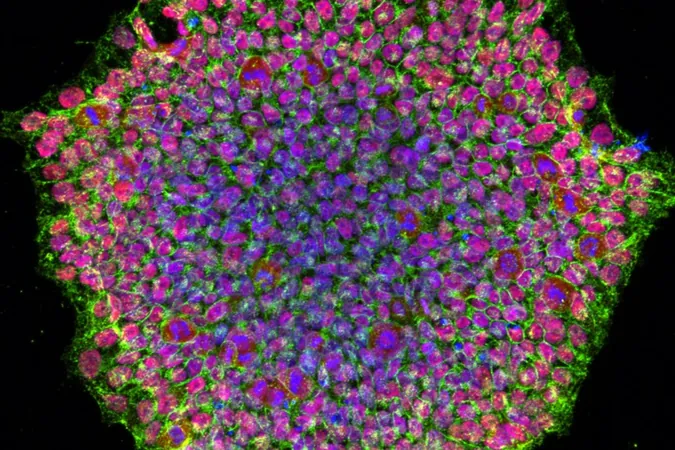
AI’s Ascendancy in Warfare: A Futuristic Dream or Just a Mirage?
2024-10-07
Author: Jia
Artificial Intelligence (AI) is still in its early stages, and according to Dutch Nobel Laureate Prof. Gerardus ’t Hooft, it will be a long time before AI can step into the shoes of human military commanders during wartime. Speaking at a conference in Mohali, he underscored the complexity of warfare, highlighting that victory often belongs to the side that can leverage science effectively. However, he emphasized a crucial point: “In war, it is the unexpected maneuvers and unanticipated actions that matter,” asserting that AI might require a millennium to catch up with the unparalleled adaptability of human decision-makers.
While AI technology is rapidly being adapted in various sectors, including defense, its role is primarily confined to automating operations, conducting surveillance, predicting potential scenarios, and aiding decision-makers in determining appropriate actions. The impact of AI in military frameworks is undeniable, with enhancements in the efficiency of logistics and information gathering. Yet, the genuine essence of strategic unpredictability remains an aspect that AI has yet to master.
In his insightful discourse, Prof. ’t Hooft also delved into the more ominous dimensions of AI, such as its potential misuse in the realm of gray zone warfare. He cautioned that while AI can streamline military operations, it raises the stakes of cyber-attacks, psychological warfare, and disinformation campaigns that loom over civilians. “AI should be carefully trained to recognize ethical boundaries,” he noted, drawing an analogy between AI and a zoo keeper who understands various animals in their care—protecting both the creatures and themselves.
Shifting the discussion to space exploration, Prof. ’t Hooft expressed that robots will likely be the first to inhabit celestial bodies, as they are better equipped to endure the harsh realities of space. He envisioned a future where humans and robots cohabit in space, though emphasized that beyond a certain distance, only robotic organisms might be fit for the journey, as humans would struggle with the physiological challenges posed by speed and distance during long expeditions.
AI is proving to be pivotal in the field of aviation, too. However, Prof. ’t Hooft reiterated that fully automating operations is still an elusive goal. He stated that AI must be trained to anticipate the unforeseen and manage unpredictable circumstances to ensure comprehensive operational safety.
Moreover, the realm of education is witnessing the burgeoning influence of AI, not as a replacement for teachers but as an important ally. AI's capacity to assist in logistical activities and enhance research into human behavior and societal trends may redefine the educational landscape, allowing for a more personalized learning experience.
In conclusion, while the potential of AI in warfare and other sectors is vast, it remains a long journey before it can truly replicate the intricate and nuanced judgment of human commanders. The future of AI is still a captivating question mark, blending possibilities with potential hazards—watching this evolution will be nothing short of exhilarating!

 Brasil (PT)
Brasil (PT)
 Canada (EN)
Canada (EN)
 Chile (ES)
Chile (ES)
 España (ES)
España (ES)
 France (FR)
France (FR)
 Hong Kong (EN)
Hong Kong (EN)
 Italia (IT)
Italia (IT)
 日本 (JA)
日本 (JA)
 Magyarország (HU)
Magyarország (HU)
 Norge (NO)
Norge (NO)
 Polska (PL)
Polska (PL)
 Schweiz (DE)
Schweiz (DE)
 Singapore (EN)
Singapore (EN)
 Sverige (SV)
Sverige (SV)
 Suomi (FI)
Suomi (FI)
 Türkiye (TR)
Türkiye (TR)